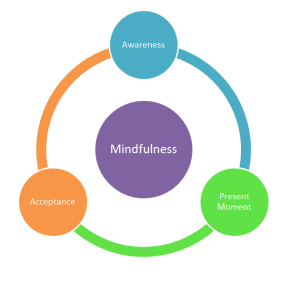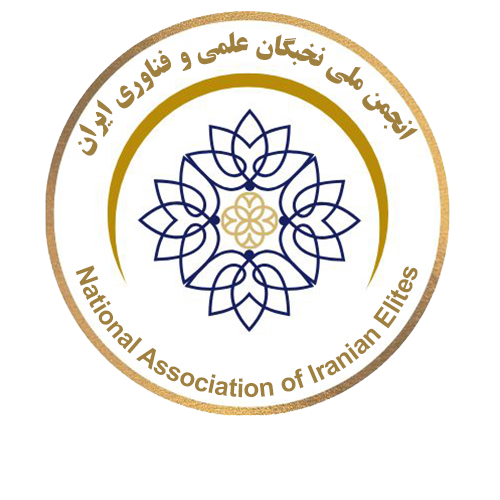Integrating Mindfulness and Brief Present-Focused Interventions in Clinical Psychology
By Farzaneh Taj Abadi Farahani-Senior Clinical Psychology Expert
I am Farzaneh Taj Abadi Farahani, and in this article, I aim to evaluate the effectiveness of integrating mindfulness with brief present-focused interventions in psychotherapy. The purpose of this paper is to demonstrate how combining “awareness of the present moment” with short-term psychotherapeutic techniques can enhance treatment outcomes.
In recent years, mindfulness-based approaches have received significant attention as one of the most influential components in psychological interventions. The classical definition of mindfulness is “intentional, nonjudgmental attention to the present moment.” However, one major challenge in applying mindfulness to psychotherapy is the time-consuming nature of structured programs such as Mindfulness-Based Stress Reduction (MBSR) or Mindfulness-Based Cognitive Therapy (MBCT). Therefore, the question arises: Can the effectiveness of mindfulness be maintained—or even enhanced—within shorter, present-focused therapeutic frameworks?
Recent research suggests that brief mindfulness interventions can produce meaningful effects. For instance, a study on healthcare professionals in the U.S. showed that a 5-session (7.5-hour) mindfulness program significantly reduced stress and anxiety. Another study found that even a single-session mindfulness and compassion intervention led to notable reductions in stress, anxiety, and depression.
Hence, integrating mindfulness with brief, present-centered psychotherapy appears to be a promising and innovative direction for clinical practice.
In the following sections, I will review the key concepts, theoretical foundations, empirical evidence, mechanisms of action, clinical applications, limitations, and future research recommendations regarding this integration.
1. Understanding Mindfulness
Mindfulness refers to a mental readiness for “silent awareness” of the present moment—paying attention to what is happening right now (thoughts, emotions, bodily sensations) in a nonjudgmental manner.
In psychotherapy, mindfulness is applied to enhance meta-awareness and reduce reactivity, forming a central part of interventions such as Cognitive Behavioral Therapy (CBT), Acceptance and Commitment Therapy (ACT), and other modern integrative approaches.
2. Brief Present-Focused Interventions
Brief interventions refer to structured, time-limited therapeutic approaches that focus on specific skills or treatment goals within a condensed timeframe.
When these interventions become present-focused, they emphasize direct awareness of momentary experience—bodily sensations, emotions, and thoughts—while reducing rumination or over-analysis of the past and future.
3. The Integration Model
The integration of mindfulness with brief present-focused psychotherapy involves using mindfulness-based techniques within a shorter therapeutic structure.
Three key components define this approach:
1. Rapid skill training in mindfulness
2. In-session practice of present-moment awareness
3. Application of mindfulness to ongoing psychotherapeutic goals
This integration allows therapists and clients to achieve meaningful therapeutic outcomes even within limited time or resource settings.
4. Theoretical Foundations and Mechanisms of Action
Mindfulness originates from Eastern contemplative traditions but has been adapted into Western psychological science. Research consistently shows that mindfulness can reduce stress, depression, and anxiety, while enhancing well-being.

Proposed Mechanisms
Reduced automatic emotional reactivity: Mindful attention decreases impulsive emotional responses driven by memory or imagination.
Increased psychological flexibility: Mindfulness enables individuals to experience thoughts and emotions without avoidance or over-identification.
Reduced rumination and worry: Present-moment awareness interrupts repetitive negative thought cycles.
Enhanced emotion regulation: Studies show that even 12-hour meditation programs can significantly improve mindfulness and cognitive reappraisal abilities.
5. Why Short-Term Interventions?
While traditional 8-week mindfulness programs are effective, they are often demanding in terms of time, cost, and commitment. Research indicates that shorter programs (5–8 sessions or even single sessions) can still reduce stress, anxiety, and depression.
This highlights the potential for brief, efficient, and accessible interventions that retain the core benefits of mindfulness.
6. Mechanisms of the Integrated Model
When mindfulness is incorporated into brief therapy, the following mechanisms are activated:
Quick learning of mindfulness techniques (e.g., breath awareness, body scan, thought observation)
In-session application: Therapist and client practice mindfulness together, focusing on present experience rather than analysis.
Immediate generalization: Skills are applied directly in real-life contexts, accelerating improvement.
Faster symptom reduction: Stress, anxiety, and depression levels often decrease within a shorter timeframe.
7. Empirical Evidence
Several studies support the efficacy of mindfulness and brief interventions:
Keng et al. (2011): Mindfulness improves well-being and reduces psychological symptoms.
Ong et al. (2024): A meta-analysis found short-term mindfulness programs effective in occupational health settings.
Ameli et al. (2020): A 7.5-hour mindfulness intervention significantly reduced stress and anxiety.
Fazia et al. (2020): A 12-session mindfulness training improved emotional regulation.
Vorontsova-Wenger et al. (2022): Brief mindfulness interventions decreased anxiety and depression.
Rubin et al. (2024): A single-session mindfulness-plus-compassion training lowered stress and depressive symptoms.
Blanck et al. (2018): Stand-alone mindfulness exercises improved anxiety and depression outcomes.
Collectively, these studies confirm the clinical potential of brief, mindfulness-based interventions for diverse populations.
8. Clinical Applications
Below are practical recommendations for clinicians who wish to apply this integrative approach:
1. Structured Short-Term Mindfulness Program
Design 4–8 sessions (weekly or biweekly), each including:
Introduction and guided mindfulness practice (5–10 minutes)
In-session application to therapeutic issues
Homework exercises (brief daily mindfulness practices)
2. Present-Moment Focus in Therapy
Therapists may use questions such as:
“What sensations are you noticing right now?”
“What thought just came up?”
They can also begin sessions with 3–5 minutes of mindful breathing to anchor both therapist and client in the present.
3. Homework and Monitoring
Assign brief daily mindfulness exercises (5–10 minutes) and review progress each session.
4. Outcome Evaluation
Use validated instruments like the Five Facet Mindfulness Questionnaire (FFMQ) and standardized stress, anxiety, and depression scales before and after treatment.
5. Implementation in Time-Limited Settings
Brief, mindfulness-based models are particularly useful in workplaces, schools, or crisis care environments where time and resources are limited.
9. Advantages and Limitations
Advantages
Greater accessibility and lower cost
Higher motivation and adherence
Flexibility across various settings
Direct skill-to-life transfer
Limitations
Limited long-term follow-up data
Small or non-clinical samples in many studies
Potentially less depth for complex psychological issues
Dependence on the quality of facilitation and client engagement
10. Future Research Directions
As a clinical researcher, I propose the following research directions:
1. Randomized controlled trials with clinical populations (e.g., major depression, PTSD).
2. Long-term follow-ups (6–12 months) to assess maintenance of gains.
3. Comparative studies between brief and traditional mindfulness programs.
4. Neurophysiological assessments to explore mechanisms (e.g., brain activity, autonomic regulation).
5. Individual differences analysis: Who benefits most from brief mindfulness?
6. Cultural adaptation of short-term mindfulness programs for diverse populations.
Conclusion
Integrating mindfulness with brief present-focused interventions offers a valuable opportunity to enhance psychotherapy outcomes efficiently. Evidence indicates that even short mindfulness practices can significantly reduce stress, anxiety, and depression.
However, systematic research and long-term follow-up are needed to strengthen this evidence base and guide best practices.
Ultimately, I recommend that clinicians incorporate this integrative model—especially in time-limited or resource-constrained contexts—as a bridge toward more accessible and effective psychological care.
To read the translation of Integrating Mindfulness By Dr. Farzaneh Taj Abadi Farahani article click here.

